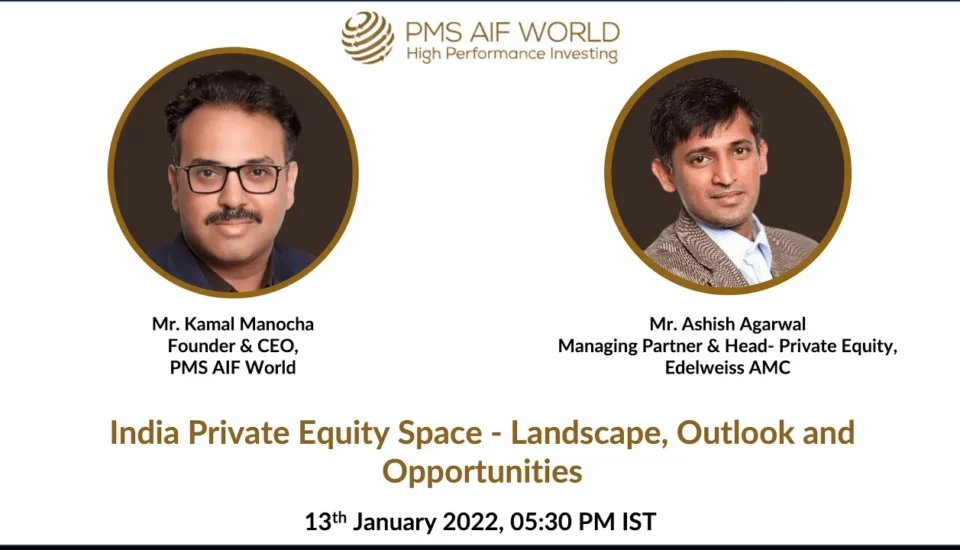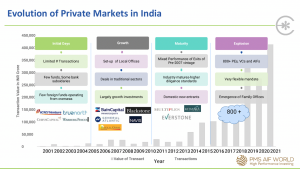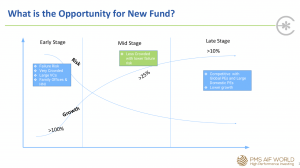Interview with Mr. Bharat Shah
Warren Buffet, the legendary investor was invited in a gathering of college students along with Bill Gates, where he remarked that his profession of being an investor is simple but not easy. In our multiple conversations with Indian public money managers this fact has come out more than often.
So, what do money managers do differently?
Below, we share excerpts from an interview we did with Mr. Bharat Shah— Executive Director, ASK Group. The interview was conducted by Sankalpo Manoj Pal— Business Development, PMS AIF World.
Sankalp Pal (SP): With Nifty at 18k, what is your investment strategy?
Bharat Shah (BS): The investing philosophy is never contextual with the benchmark, if your investment philosophy is linked to the market levels then it’s not a philosophy but it’s a convenience mechanism. Market philosophy held ransom to the whims and fancies of market movements cannot be called a philosophy. Thus, a good philosophy evolves over time and a good philosophy stays true all levels of the market. The approach to investing remains same through most times as there are very few companies in the market that deserve your attention and even fewer that deserve your money. There are certain characteristics of good business starting with the nature of the management – the management capability can be judged by ability of management to capture the growth and execute the ideas and then capital allocation, very few good businesses have the guidance of a good manager. On the other side the quality of the business can be evaluated by a few features- the size of opportunity and the growth to capture the opportunity, the quality of the growth can be judged by how much more outcomes can be generated with similar efforts and capital gone into the businesses for a long period of time.
The above factors to a good investor create a valuation range, and here the task of a good investor is to evaluate at what price the business deserves their money. The last part of the investment philosophy is to deal with the market ups and downs and stay through the course and avoid the honey traps of the market.
Investment Philosophy means doing all these things again and again, a good investor needs to be confident yet skeptical in their philosophy. This doesn’t change over time as an investor no matter where the market is. A great investor harnesses all the qualities of good business.
SP: Bharat bhai you have been investing money as a vocation for close to 3 decades now, do you think someone newer to investing might not be able to grasp basics of investing as well as you do?
BS: Parts of attribute can be acquired, improvised, or polished over time and then are those attributes which you either have or you don’t the, the science of investing and the later typically make the art of investing.
The science of investing involves understanding businesses, understanding capability of management, insights on the size of opportunity, future growth, and the concept of the economic life of the business and then discounting that to the present. The science of investing also involves making a judgement and refining the judgement. All these involve making critical decisions but most of these can be acquired or improvised over a period of time.
The art of investing on the other hand has aspects which are more intimate to the character of the person and these attribute that comprise the art of investing might not be the ones that can be acquired.
As discussed earlier investing often requires you to have contrary emotions of both faith and scepticism aggression and conservativeness and this is not an easy task to accomplish, and intellect might not be able to help here. The markets at all points in time are a mix of emotions and rationality, the nature of a good investor requires him or her to be able to apply their rationality to the emotionality of the markets, this is again a task that requires a skill which you either have or you don’t.
Another important aspect of a successful investor is the self-awareness, knowing the limitations and knowing the strengths, understanding where your inclinations lay this is a skill which is essential to investment success.
A mix of intellect and the art of investor helps them go through the various up and downs, seductions, enchantments of the market. While most focus on the science of investing there’s significant case for the art of investing.
SP: We have seen lots of popular stocks becoming significant wealth creators in the last decade. While a lot of fund managers help them though the journey, many fund managers and investors would have gotten out of them much earlier, how can you explain the differences in the opinions and holding periods in these stocks?
BS: Amongst all the things necessary for a successful investor at the pinnacle is the ability to stay the course and it is not easy at all. Despite all the skill and scientific acumen of identifying the right businesses and the winning opportunity if the temperament to stay the course is not met the investment will be a fraction of what it could be.
Staying the course is never easy, for example a rupee invested in Bajaj Fin 11 years ago is roughly Rs 100 today, however through the 11 years the rupee would have gone to Rs 4 and come down to Rs 2 and risen to Rs 8 and then back to Rs 6 and so on… during this journey it’s very difficult to convince yourself to stay the course and knowledge or skills are of little use to an investor in this regard, thus its very essential how you react to the emotions of the market and are able to distinguish what is transient and what is permanent to the business you invest in.
Making a sound decision once doesn’t mean your work is done, you have to do the evaluation process from time to time to ensure that logic of investing in the business still holds true.
Finally, one must be cognizant how powerful compounding gets with time and the ferocious impact it can have on your portfolio. 25% in 3 years means 2x, 9 x in 8 years and close to 16x in 15 years. In this course of compounding the penalty of missing out even a couple years of compounding would be real and huge; therefore, one has to honour and respect the process of compounding.
As a closing remark, markets don’t lack talent and intellect, in the equation of investing rewards the art part plays a very significant and large role and is often short in supply, and the art of investing is what makes the difference when it comes to returns from investments.
SP: Alpha v/s consistency? How do you look at the two and what’s your preference amongst these?
BS: Alpha and consistency are not polar opposites to each other and in fact alpha is delivered over a period of time by the consistency of thinking, approach, philosophy, discipline and skill provided that the base is set right. Tables kept for long don’t turn into diamond and hence its important investors thus begin by setting the right approach.
However, what confuses many observers is the tangibility of shorter term metrices like returns, for observers to look beyond the tangible short term is difficult and requires a lot of efforts, while evaluating things like process, risk control, philosophy and underlying portfolio are often forgotten due to their amorphous nature.
Often good managers who otherwise have good control over their destiny thus end up doing things that might not be in the best of interest to their clients and organizations due to the tangibility of factors evaluated.
SP: How should investors then evaluate performance?
BS: Over the longer term there’s only one way to evaluate a fund manager and that is performance, its only in the short term that observers might get the big picture wrong if they focus too much on just returns.
SP: How have you followed your process over a very long term by ignoring noises in the market?
BS: Ignoring noise in the market is about tackling market emotionality with your rationality if you tackle market emotionality with your emotionality you are heading for a dangerous situation. Ignoring noise leads to self-nourishment and is a great service to oneself as an investor.
Ignoring noise will always mean taming or subjugating it, it’s very unlikely that you will absolutely cut down noise and this process involves two aspects – the science and art of ignoring noise.
In the first part all the information, data, judgements, and your persistent data combined creates information, this information leads to confidence and from confidence the equanimity,
equanimity gives you the power to ignore noise and choose signals instead, however most of these data, information, efforts and judgements might seem like an incoherent set and might not mean anything but over the years they built up to make you knowledgeable enough.
The second part is about your personality and how to deal with things that happen in the market- the ability to understand that most things in the market are transient and not permanent. One doesn’t need to attain nirvana to understand this, you just need to understand enough to be indifferent to most noises in the markets, it’s like sitting in front of an ocean – when the waves hit the shore the noise can be unnerving and disturbing at first but after some time you to get used to it and the noise of the waves stop bothering you…
Disclaimer: Mr. Bharat Shah is the Executive Director of ASK Group. The views expressed in this article are personal.
RISK DISCLAIMER: Investments are subject to market-related risks. This write up is meant for general information purposes and not to be construed as any recommendation or advice. The investor must make their own analysis and decision depending upon risk appetite. Only those investors who have an aptitude and attitude to risk should consider the space of Alternates (PMS & AIFs). Past Performance may or may not be sustained in the future and should not be used as a basis for comparison with other investments. Please read the disclosure documents carefully before investing. PMS & AIF products are market-linked and do not offer any guaranteed/assured returns. These are riskier investments, with a risk to principal amount as well. Thus, investors must make informed decisions. It is necessary to deep dive not only into the performance, but also into people, philosophy, portfolio, and price, before investing. We, at PMS AIF World do such a detailed 5 P analysis.















